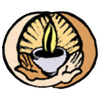WHAT IS FAIR TRADE COFFEE?
“Fair trade” is a revolutionary concept in action. It is a program that brings together the producer (the coffee grower) and the consumer (the coffee drinker) in a more equitable and meaningful way. The coffee industry middlemen (called Coyotes) are by-passed and a more direct bridge is built between the producer and the consumer.
The Need for “Fairly Traded” Coffee
Coffee is traded as a commodity in the global market place and is often sold by the growers at a loss. The middlemen in the coffee industry — those that buy and sell coffee endeavoring to maximize their profits — set the price that they will pay to the growers for the coffee. The growers are typically helpless in the process and are often made to feel lucky to have gotten anything for their coffee at all. Thus, the pickers and growers are taken advantage of by the middlemen and loose out — often living a life of poverty.
Building that Bridge…
TransFair USA, a non-profit, third-party organization, has been created…
- to help organize independent coffee growers into democratically run Cooperatives
- to establish a fair “minimum price” (called the Fair Trade price) to be paid to the growers for the coffee
- to certify that the grower is paid the pre-established, Fair Trade price by the Importer/Roaster/Retailer for the coffee
- to assure that the additional funds raised by the growers are funneled back into their local communities
- to certify that the Importer/Roaster/Retailer selling coffee as “Fair Trade Certified,” did, in fact, purchased the coffee at the Fair Trade price
- to raise US awareness to the plight of the coffee growers around the world and create a market for “Fair Trade Certified” Coffees in the US
- Fair Trade Certification in Action
According to a 1999 TransFair USA survey in Central America, non-Fair Trade coffee farmers received an average of about 38¢ per pound from the middlemen to which they were forced to sell. Thanks to the work of TransFair USA, Fair Trade coffee cooperatives receive a guaranteed minimum of $1.26 per pound for their coffee, plus a 15¢ per pound premium if it is also certified organic. The extra money raised by the participating growers goes a long way!
Fair Trade Certified coffee is grown on small, family-run farms. Farmers receiving a Fair Trade price for their coffee can afford improved healthcare and housing for their families and can keep their kids in school longer, instead of working in the fields. Receiving a decent price also means farmers can afford materials for the farm, such as a mule to haul the heavy coffee sacks down the mountain (instead of their own backs) and a mechanical de-pulping machine to process the coffee cherries (instead of a slow hand-crank). Some of the revenues from Fair Trade cooperatives are used for community projects, such as building schools and healthcare centers. Revenues are also often used to provide farmers with training in organic farming techniques.
For more info on the Fair Trade Certification process: http://www.transfairusa.org

